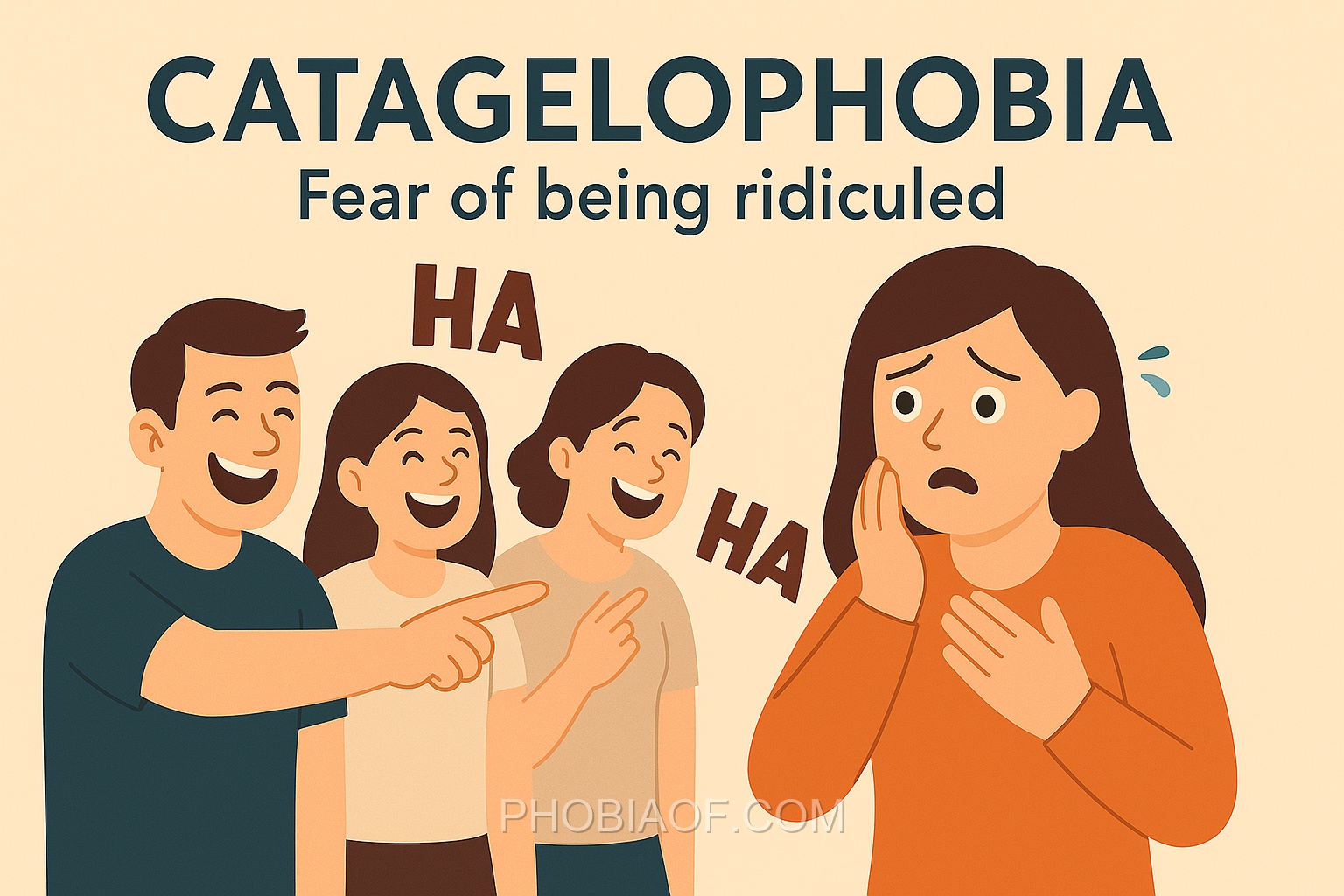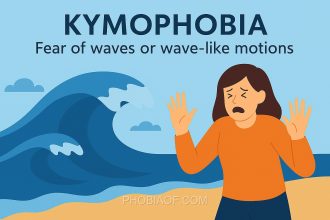Have you ever hesitated to share your thoughts in a meeting or felt anxious about making a mistake in front of others? If so, you’re not alone. Many people experience a fear of being ridiculed, known as Catagelophobia.
In simple terms, Catagelophobia is the intense fear of being mocked or humiliated by others. The term comes from the Greek words “katagelo” which means “to ridicule” and “phobos” meaning “fear.” This phobia can manifest in various ways, often causing individuals to avoid social situations where they might be laughed at or judged.
For those affected by Catagelophobia, the fear of ridicule can significantly impact daily life, leading to:
- Avoidance of social interactions or public speaking opportunities.
- Extreme self-consciousness and anxiety in group settings.
- Difficulty in building or maintaining relationships due to fear of judgment.
Understanding and acknowledging this fear is the first step towards managing it. With the right support and strategies, individuals can learn to navigate social situations with greater confidence and ease.
Causes of Catagelophobia
Catagelophobia is the fear of being ridiculed or mocked. Understanding its causes can help in addressing this phobia effectively. Several factors may contribute to the development of this fear.
- Genetic Predisposition:
Some individuals may have a genetic tendency towards anxiety-related disorders. If a family member suffers from phobias or anxiety, there might be a higher chance of developing catagelophobia.
- Traumatic Experiences:
A person may develop this fear after experiencing or witnessing a humiliating event. Such incidents can leave a lasting impression, leading to a persistent fear of ridicule.
- Learned Behavior:
Observing others who exhibit fear of ridicule can influence someone to adopt similar fears. This learned behavior may stem from family or social circles where being mocked is a common experience.
- Psychological Factors:
Low self-esteem or a lack of self-confidence can make individuals more susceptible to the fear of being laughed at. These psychological traits can heighten sensitivity to others’ opinions.
- Environmental Factors:
Cultural and societal norms that emphasize the importance of maintaining a certain image or reputation can contribute to the fear. In environments where mockery is prevalent, individuals may become more apprehensive about being ridiculed.
Research on catagelophobia suggests that it can be a complex interplay of various factors rather than a single cause. Understanding these potential origins can be crucial in developing effective coping strategies and treatments for those affected by this phobia.
Symptoms of Catagelophobia
Catagelophobia is characterized by an intense fear or anxiety about being ridiculed or made fun of. This phobia can manifest through various physical, emotional, and behavioral symptoms. Recognizing these symptoms can be the first step towards understanding and addressing the phobia.
Common Physical Symptoms:
- Panic attacks, which may include feelings of extreme fear and a sense of losing control.
- Excessive sweating, particularly in situations where one fears ridicule.
- Rapid heartbeat or palpitations, often accompanied by shortness of breath.
- Trembling or shaking, especially when faced with potential social interactions.
- Gastrointestinal distress, such as nausea or stomach upset.
Emotional and Behavioral Symptoms:
- Overwhelming dread at the thought of being laughed at or mocked.
- Avoidance of social situations or triggers that may lead to ridicule.
- Feelings of embarrassment or humiliation, even in the absence of actual ridicule.
- Low self-esteem and negative self-talk, often rooted in the fear of judgment.
- Difficulties in relationships, stemming from the avoidance of social interactions.
When severe, these symptoms can significantly interfere with daily life, affecting personal relationships, career opportunities, and social engagements.
Treatment for Fear of Being Ridiculed
Catagelophobia, the fear of being ridiculed, can be a challenging phobia to live with, but rest assured, it is treatable and manageable over time. Many individuals have successfully overcome this fear by engaging in various therapeutic and self-help strategies. With dedication and the right support, you can regain control and lead a more confident, fulfilling life.
Below are some proven therapies and coping strategies to help you on your journey:
Therapeutic Approaches
- Exposure Therapy: This involves gradually facing the fear of ridicule in a controlled and safe environment. By slowly exposing yourself to situations where ridicule might occur, you can desensitize your emotional response over time.
- Cognitive-Behavioral Therapy (CBT): CBT focuses on identifying and changing the negative thought patterns that fuel your fear. Through this therapy, you can learn to challenge and reframe fearful thoughts, replacing them with more balanced and rational perspectives.
- Counseling: Speaking with a counselor can provide a supportive space to explore the roots of your fear and develop personalized strategies to manage it effectively.
Complementary Self-Help Techniques
- Relaxation Exercises: Techniques such as deep breathing, progressive muscle relaxation, and visualization can help reduce anxiety and promote calmness.
- Meditation: Regular meditation practice can enhance mindfulness and help you develop a more balanced response to fear-inducing situations.
- Support Groups: Connecting with others who share similar fears can provide comfort, encouragement, and practical advice. Sharing experiences and strategies can be incredibly empowering.
In some cases, medication such as anti-anxiety medications may be prescribed to manage severe symptoms. However, the focus should remain on therapy and coping skills as long-term solutions.
Remember, seeking professional help is an important step if this phobia is interfering with your daily life. A mental health professional can guide you through the process of overcoming catagelophobia, tailored to your unique needs.
Take the first step towards conquering your fear. With perseverance and support, you can build resilience and confidence to face situations without the fear of ridicule.
Conclusion
Understanding the causes and symptoms of catagelophobia, the fear of being ridiculed, is an essential step in empowering individuals to address and manage this phobia effectively. By recognizing the root of their fears and identifying the triggers, individuals can begin to take control of their emotional responses and work towards overcoming their anxiety.
It is important to remember that many people have successfully managed or overcome their phobias with time, patience, and the right support. Therapy and medical guidance can be invaluable resources on this journey. If you or someone you know is struggling with catagelophobia, consider reaching out to a mental health professional or a doctor to explore the options available for support and treatment.
Remember, you are not alone, and help is always available. With the right tools and support, you can lead a life free from the constraints of fear and anxiety.






